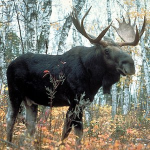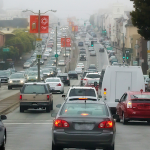"Climate-anxious" college students are pushing to have low-risk pesticides banned from their campuses. Meanwhile, states that have legalized recreational marijuana use are concerned that their new policy may cause more car accidents. We examine the science behind both stories on episode 14 of the Science Dispatch podcast.
car accidents
The built environment can heat and cool us, human error, debunking the latke, and who is really anti-nuclear power?
The Massachusetts lawmaker wants to end "traffic violence." What? The word violence implies purposeful, often malicious, intent. That word in no way describes how most people die in car crashes, which are accidents. As a Democratic candidate for President, she's trying to scrounge-up votes from people who see themselves as victims.
One of the most important driving safety tips is to never swerve if an animal jumps in front of your car. Dog, cat, deer, raccoon -- don't swerve. Although it's an extremely natural instinct, it's also potentially deadly. If you swerve, you could hit a tree or an oncoming vehicle. But there's one exception to this general rule.
America's worst drivers are likelier to be men or people who live in the South, are either young or old, or identify as Native American. America's best drivers are likelier to be women or people who live in the Northeast, are aged 35 to 75, or identify as Asian.
The Centers for Disease Control calculated that, on an average day, 103 Americans die in car accidents, 121 commit suicide and 49 are homicide fatalities. But that's the average day. As it turns out people die differently on Monday than they do on Saturday.





